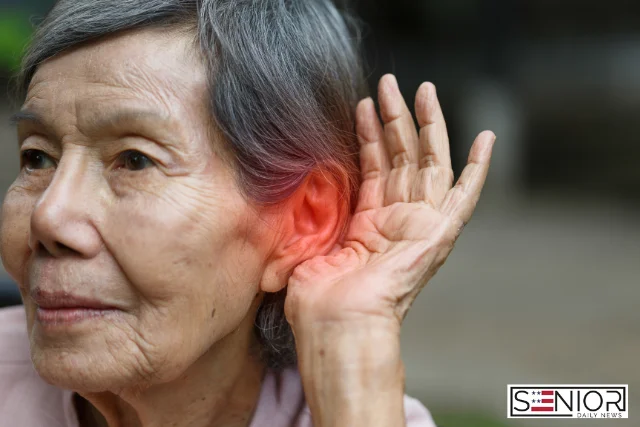The Connection Between Hearing Loss and Mental Health

Hearing is something many of us take for granted until it begins to fade. For seniors especially, hearing loss is one of the most common health conditions, yet its effects extend far beyond difficulty in conversation or watching television. What often goes unnoticed is the strong connection between hearing loss and mental health. Struggling to hear doesn’t just affect the ears—it impacts confidence, relationships, cognitive function, and emotional well-being. Understanding this link can empower older adults and their families to seek timely support, improve quality of life, and protect both emotional and mental health.
Why Hearing Loss Is More Than Just an Ear Problem
Hearing loss affects nearly one in three adults over the age of 65 in the United States, according to the National Institute on Deafness and Other Communication Disorders. Many seniors view it as a natural part of aging, but the consequences reach much deeper. When hearing becomes difficult, conversations feel exhausting, social situations are avoided, and connections to the outside world begin to shrink. This isolation can lead to emotional struggles such as depression, anxiety, and loneliness. Over time, the strain of untreated hearing loss can even affect memory and thinking abilities.
Hearing plays a vital role in how we interact with the world. When this sense is diminished, the brain has to work harder to interpret sounds and fill in gaps, leaving less energy for other tasks. That constant mental effort contributes to fatigue, frustration, and, eventually, changes in mood and mental health.
Hearing Loss and Social Isolation
One of the first emotional challenges linked to hearing loss is social isolation. Imagine attending a family gathering where conversations move quickly, laughter fills the room, but you can’t quite catch the punchline. Over time, these experiences make people feel excluded, even among loved ones. Many seniors withdraw from group activities, church gatherings, or community events because it feels easier to avoid embarrassment than to ask people to repeat themselves.
Isolation is more than an inconvenience; it is a risk factor for mental health conditions like depression. Studies have shown that seniors with untreated hearing loss are more likely to experience feelings of sadness, hopelessness, and disconnection. Staying socially engaged is essential for emotional well-being, but hearing loss can quietly chip away at that connection.
The Link Between Hearing Loss and Depression
The frustration of struggling to hear can cause a cycle that feeds into depression. First, conversations become difficult, leading to misunderstandings or embarrassment. Then, social withdrawal follows, reducing opportunities for joy and companionship. Without those positive experiences, it’s easy for sadness to deepen. Seniors with hearing loss often report feeling a loss of independence, which can further worsen depressive symptoms.
The good news is that treatment—such as hearing aids or assistive listening devices—can break this cycle. Restoring clearer hearing allows seniors to re-engage with loved ones and reduces the risk of emotional decline.
Hearing Loss, Anxiety, and Confidence
Another emotional impact of hearing loss is anxiety. When you’re unsure if you heard someone correctly, or if you might respond inappropriately, it creates worry and self-doubt. Many seniors report feeling nervous about phone calls, attending medical appointments, or even chatting with neighbors because they fear embarrassment. This type of anxiety chips away at confidence and independence.
For example, a senior might hesitate to go grocery shopping alone, worried about missing an important question from a cashier. Over time, this anxiety can make daily life feel intimidating. Recognizing this pattern is the first step toward regaining confidence through hearing care solutions.
Cognitive Decline and Dementia Risk
Beyond mood disorders, hearing loss has been linked to more serious mental health challenges, including cognitive decline. Research from Johns Hopkins University found that seniors with untreated hearing loss are at a higher risk of developing dementia. The reasons may include:
- Brain strain: When the brain is constantly trying to decode muffled sounds, it has fewer resources for memory and reasoning.
- Isolation: Reduced social interaction deprives the brain of stimulating conversations that keep it sharp.
- Structural changes: Long-term hearing loss may actually change the way the brain processes information.
While hearing loss is not a guaranteed path to dementia, it is considered a significant risk factor. This makes early treatment and prevention especially important.
The Emotional Toll on Relationships
Hearing loss doesn’t just affect the individual—it impacts family members and close relationships too. Misunderstandings during conversations can cause frustration on both sides. Partners may feel ignored, while the person with hearing loss may feel nagged or misunderstood. This tension can strain marriages, friendships, and family bonds. Emotional distance often grows if hearing loss is left unaddressed.
Encouraging open discussions about the challenges of hearing loss and exploring solutions together can strengthen relationships rather than weaken them. Family involvement in seeking treatment often leads to better outcomes and greater emotional support.
The Role of Stigma
Despite the availability of effective hearing aids, many seniors hesitate to use them. Stigma plays a big role—some associate hearing aids with aging or frailty and resist wearing them out of pride. Unfortunately, avoiding treatment only worsens both hearing and mental health challenges over time.
Breaking this stigma requires changing how society views hearing aids. Just as glasses are seen as a normal and even stylish solution for vision, hearing aids should be embraced as tools that enhance independence and connection.
Practical Steps to Protect Mental Health
The link between hearing loss and mental health may sound daunting, but there are many steps seniors can take to protect themselves:
- Schedule a hearing test regularly – Just like eye exams or blood pressure checks, hearing should be part of routine healthcare.
- Consider hearing aids or assistive devices – Today’s devices are smaller, more discreet, and more effective than ever.
- Stay socially active – Even if hearing is challenging, joining small groups, using captioned phones, or attending senior centers can provide connection.
- Practice good communication strategies – Sit close in conversations, choose quieter settings, and let others know how they can help.
- Address emotional health directly – If feelings of depression or anxiety surface, talking to a mental health professional is just as important as treating hearing issues.
- Involve family and friends – Loved ones can provide encouragement, patience, and support in managing both hearing and emotional well-being.
Hearing Aids and Mental Health Benefits
Research consistently shows that seniors who use hearing aids report improved quality of life. By restoring clearer hearing, these devices reduce social withdrawal, improve mood, and even slow cognitive decline. Hearing aids also increase confidence in daily activities, making seniors more likely to stay engaged in hobbies, volunteering, and family events. For many, hearing aids don’t just improve sound—they restore a sense of independence and joy.
Looking Ahead: A Holistic Approach
The connection between hearing loss and mental health reminds us that health is never just about one system of the body. Ears, brain, emotions, and relationships are all interconnected. Addressing hearing loss early not only prevents frustration but also helps protect long-term emotional and cognitive well-being. Seniors who take hearing health seriously are investing in a brighter, more connected future.
FAQs About Hearing Loss and Mental Health
1. Is hearing loss a normal part of aging?
Yes, age-related hearing loss is common, but it doesn’t mean you have to accept the negative effects. Treatment options are available and can significantly improve quality of life.
2. Can hearing aids really reduce the risk of depression?
Yes, studies have shown that hearing aid users often experience lower rates of depression and greater social engagement compared to those who leave hearing loss untreated.
3. How does hearing loss increase dementia risk?
Hearing loss strains the brain, reduces social interaction, and may change brain structure over time—all of which can contribute to cognitive decline.
4. What signs should I look for in myself or a loved one?
Frequent requests for repetition, turning up the TV volume, avoiding social gatherings, or seeming withdrawn are common signs of hearing loss.
5. What should I do if I feel embarrassed about using hearing aids?
Remember that hearing aids are simply tools—just like glasses—that restore independence and connection. Modern devices are discreet and far less noticeable than the effects of untreated hearing loss.
6. How can family members help a loved one with hearing loss?
Offer patience, speak clearly, reduce background noise, and encourage them to seek professional help. Emotional support is just as important as practical assistance.
Image Source: Canva






